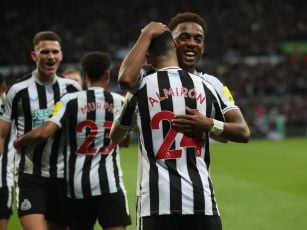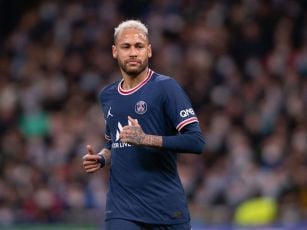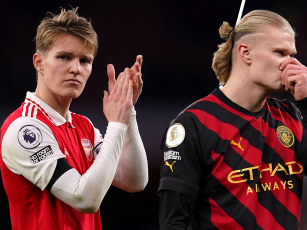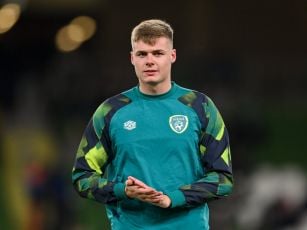On Saturday, Ireland's path towards what will hopefully end up being qualification for the 2018 World Cup makes a stop in Vienna.
Standing in the way will be the home side Austria, who have made an inconsistent start to the group off the back of a poor Euro 2016 campaign that fell below expectations.
Thus far, they have edged Georgia 2-1 away, drew 2-2 at home to Wales and lost 3-2 in Serbia.
We haven't been particularly impressive performance-wise but Austria have fewer points on the board for now.
Vienna, of course, is an important location in the development of European football as explained in detail by Jonathan Wilson's Inverting the Pyramid.
During the first half of the 20th century, football ideas were born and poured over in the coffee houses of Vienna and other central European cities, so much so that Wilson writes: "The modern way of understanding and discussing the game was invented in the coffee houses of Vienna".
But it was also the birthplace of Ernst Happel, one of world football's most successful and influential coaches.
Indeed, Ireland will be facing Austria in the Ernst Happel Stadion, named after the man himself.
A former defender for his hometown Rapid Vienna across two spells from the late 1930s all the way to 1959, as well as a member of the Austria squad that finished third in the 1954 World Cup, Happel's influence would be truly felt as a manager in 1970s Netherlands and then in 1980s Germany with a Hamburg side that would win everything there was to win.
His management career began in the Netherlands with ADO Den Haag in the early '60s. But it was spell with Feyenoord between 1969 and 1973 that first marked him out as a legend.
Just before the legendary Johan Cruyff-Rinus Michels inspired era at rivals Ajax really took off on the European scene, it was Rotterdam's Feyenoord that first gifted Dutch football the European Cup in 1970.
Defeating Celtic in the final that year, Feyenoord were deserved winners according to the match report by the late legendary The Times football writer Geoffrey Green.

General view of the Ernst Happel Stadion in Vienna venue for the FIFA 2014 World Cup Qualifier between Austria and Republic of Ireland ©INPHO/Donall Farmer
In it he writes of the extra-time victory, that "Feyenoord should have won long before, dominating the match almost from the start", that they were "playing some beautiful precision football" and that they "stroked the ball around in tight little circles, teasing and at times humbling their foe".
There's also a beautiful line in which he describes "The Dutch football spoke a delicate, dancing language of its own".
Happel was the orchestrator as coach, even though Feyenoord's achievements were somewhat overshadowed by Ajax winning three European Cups in a row straight after that.
Between the 1969-70 season and 1972-73 Ajax and Feyenoord swapped between first and second in the Dutch league, with Happel's side winning the title in 1971.
After leaving Feyenoord, Happel spent five years outside the Netherlands with Sevilla and Club Brugge (he won three leagues in a row with the Belgian side and also guided them to the finals of the UEFA Cup and European Cup in 1976 and '78 respectively), before being invited back to take charge of the Dutch national side that he would guide to the 1978 World Cup final in Argentina.
Five years later, he would be back in another major final - but at club level. By the early 1980s, he had taken charge at SV Hamburg.
While The Dinosaurs sit bottom of the Bundesliga these days and look set for a first ever relegation, Happel was the man in situ when they briefly became the top club in European football.

Ernst Happel - Wikimedia Commons
Leading them to league glory in 1982 and 1983, as well as a UEFA Cup final in '82, Happel would again conquer the European Cup in '83.
Up against the Juventus of former Ireland manager Giovanni Trapattoni who had legends like Michel Platini, Dino Zoff and Zbigniew Boniek in a star-studded side, Happel's Hamburg would win 1-0 thanks to an early goal from future manager Felix Magath.
For Happel, it was a milestone as he became the first man to win the European Cup with two different clubs - before Jose Mourinho, Carlo Ancelotti, Ottmar Hitzfeld and Jupp Heynckes would do the same years later.
A German Cup with Hamburg would follow in 1987 before he finished his club career at Swarovski Tirol with two league titles in a row.
And in 1992, three decades on from when he started out in management, he finally took the reins of the Austria national team but unfortunately passed away on November 14th of that year due to lung cancer, with Vienna's Praterstadion named after him in tribute shortly after that.
The 24th anniversary of his death is next week, shortly after Ireland's visit.
Download the brand new OffTheBall App in the Play Store & App Store right now! We've got you covered!
Subscribe to OffTheBall's YouTube channel for more videos, like us on Facebook or follow us on Twitter for the latest sporting news and content.








